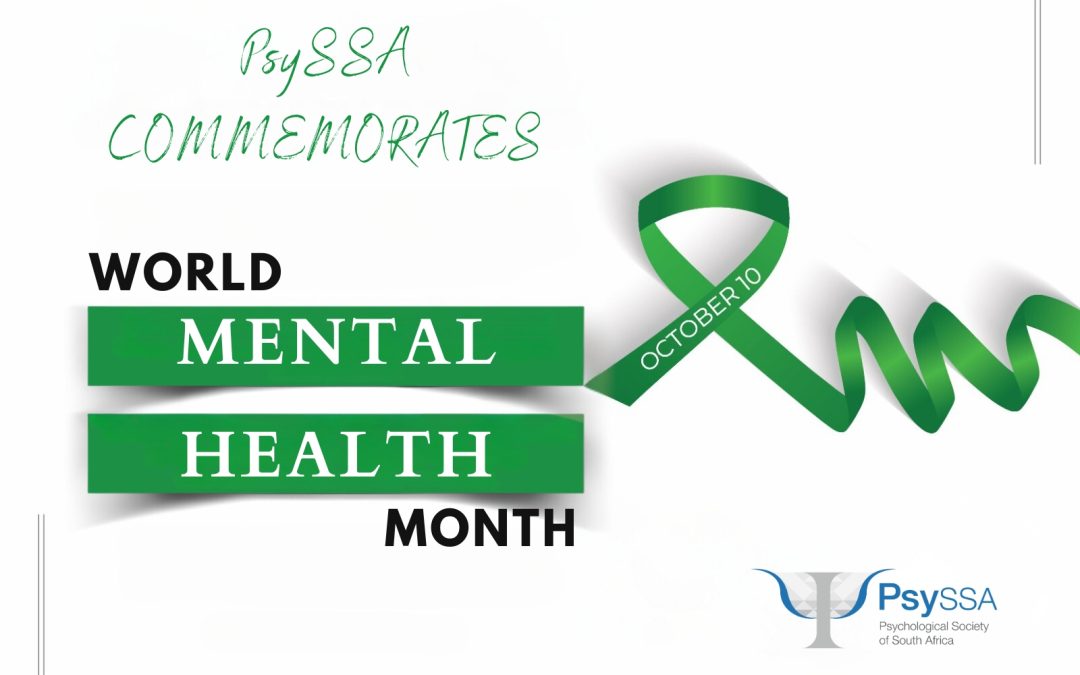World Mental Health Day 2024
Brief history of World Mental Health Day
by Mr Sulaiyman Philander from the Division of Research and Methodology
World Mental Health Day is a global initiative founded by the World Federation for Mental Health (2022). First celebrated on October 10, 1992, it aims to promote mental health advocacy and educate the public about mental health issues. Over the last three decades, it has become an annual observance encouraging individuals to reflect on their mental well-being and engage in conversations about mental health. This year, the focus is on mental health in the workplace, an area gaining attention due to the increasing pressures of modern work life. The 2024 theme, “It’s Time to Prioritize Mental Health in the Workplace,” highlights the need for a holistic approach, advocating for mental health awareness and practices that foster thriving work environments (Akiyama, 2024).
South Africa: A unique perspective
Work-related stress, long hours, and the blurring of work-life boundaries — particularly exacerbated by the COVID-19 pandemic and South Africa’s complex economic climate — have made it crucial for both employees and employers to take a proactive role in mental health care (Kotera et al., 2021; Van Der Vaart & De Beer, 2021). Employers should remain cognisant of the relationship between promoting positive mental health, a motivated work force and productivity. Creating supportive work environments, preventing burnout, and providing accessible mental health resources for employees align with both this year’s theme and existing literature.
In South Africa, the workplace poses unique challenges, especially for emerging adults (18-29 years) (Naudé & Esau, 2024; Olonisakin et al., 2024). Many workers face long hours, high stress, and job insecurity, leading to increased rates of burnout and mental health issues (Kotera et al., 2021; Van Der Vaart & De Beer, 2021). The contrast between high unemployment among emerging adults and the pressures on those employed creates a complex dynamic placing significant strain on an already overburdened mental healthcare system. Mental health care, both before joining and within the workplace, is not a luxury but an urgent necessity to ensure individuals remain productive, healthy, and engaged.
This October 10th: Take care of your mental health
World Mental Health Day 2024 reminds us to prioritise our mental health, especially in environments where stress and pressure are common. Whether you are employed or job-seeking, taking time to care for your mental well-being is vital. Mental health involves more than managing stress; it is about cultivating meaningful emotional experiences, nurturing supportive relationships, and maintaining a sense of purpose, regardless of employment status (Van Der Vaart & De Beer, 2021; Van Lill & Bakker, 2022). This year, let us collectively promote mental health by:
- Being open about workplace struggles and encouraging open dialogue among colleagues.
- Striving for meaningful and engaging lives, whether employed or unemployed (Thill et al., 2020; Van Der Vaart & De Beer, 2021).
- Being kind to yourself and others while also utilising existing mental health resources (Kotera et al., 2021).
- Striving for purpose, whether at work or in our communities (Van Lill & Bakker, 2022).
Mental health support resources:
- Find a psychologist PsySSA directory
- South African Depression and Anxiety Group (SADAG) contact details
- SADAG support group – Unemployment and job seekers
- National Mental Health Policy Framework and Strategic Plan 2023 – 2030
* OpenAI’s (2024) ChatGPT was utilised to assist with editing and structuring the article.
References
Akiyama, T. (2024, April 17). “It is time to prioritize mental health in the workplace”. World Federation for Mental Health. https://wfmh.global/news/2024.24-04-17_wmhd2024-theme
Kotera, Y., Mayer, C.-H., & Vanderheiden, E. (2021). Cross-cultural comparison of mental health between German and South African employees: Shame, self-compassion, work engagement, and work motivation. Frontiers in Psychology, 12, 627851. https://doi.org/10.3389/fpsyg.2021.627851
Naudé, L., & Esau, M. (2024). The quest for a “soft life” and the transition into adulthood: Views from South African emerging adult students. Emerging Adulthood, 0(0), 1–15. https://doi.org/10.1177/21676968241273135
Olonisakin, T. T., Adedeji, A., & Idemudia, E. S. (2024). Examining psychological outcomes of social inequality for Black South Africans. Studies in Clinical Social Work: Transforming Practice, Education and Research, 94(1), 45–66. https://doi.org/10.1080/00377317.2023.2222171
OpenAI. (2024). ChatGPT (Sep 13 version) [Large multimodal model]. https://chat.openai.com/
Thill, S., Houssemand, C., & Pignault, A. (2020). Effects of meaning in life and of work on health in unemployment. Health Psychology Open, 7(2), 1–11. https://doi.org/10.1177/2055102920967258
Van Der Vaart, L., & De Beer, L. T. (2021). Engaged but exhausted: Work-related wellbeing profiles of South African employees. International Journal of Wellbeing, 11(4), 88–105. https://doi.org/10.5502/ijw.v11i4.1823
Van Lill, R., & Bakker, T. M. (2022). Significance as component of meaning in career narratives of unemployed graduates. South African Journal of Psychology, 52(3), 301–312. https://doi.org/10.1177/00812463211059280
World Federation for Mental Health. (2022, August 22). About the World Mental Health Day. https://wmhdofficial.com/about-the-world-mental-health-day/

